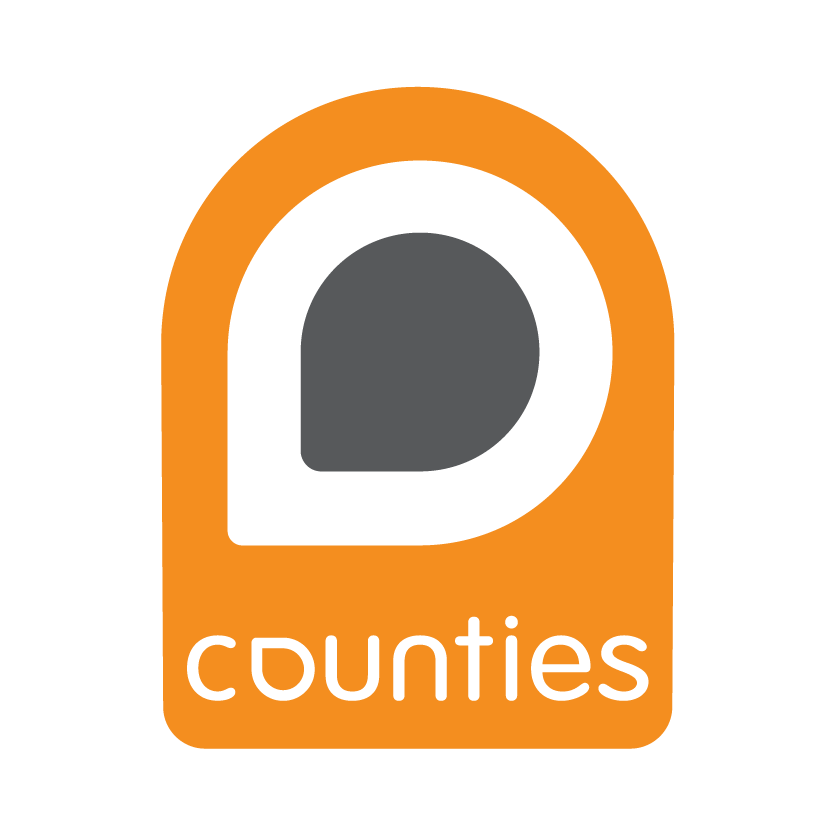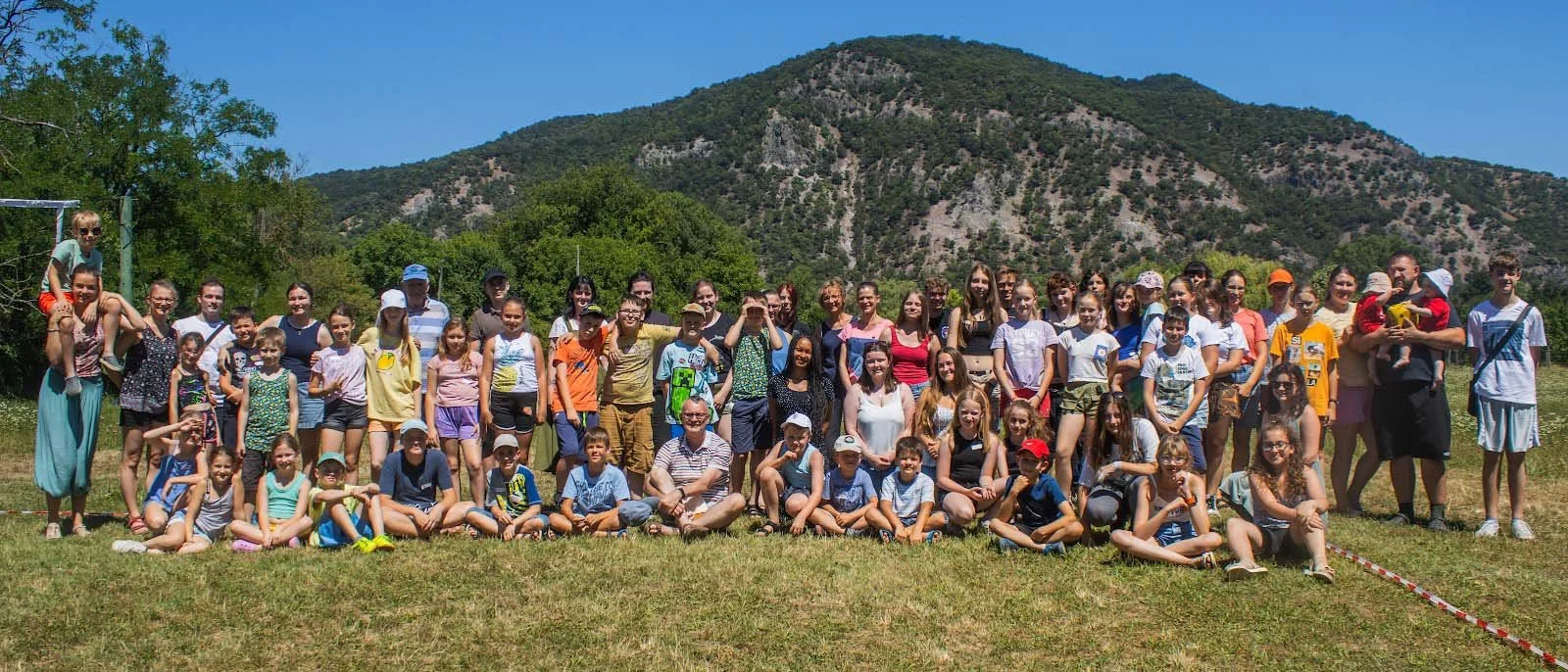Sharing the Gospel in Hungary
Counties Communications Officer, Kate Lawson, tells us about her recent GLO team in Hungary.
At the beginning of July, I was on a GLO team in Dömös, Hungary. Although I went as a volunteer, I am also the Communications Officer at Counties, which gives me a unique opportunity to share stories like this one. Our team partnered with the local church to support their annual English Holiday Bible Club. An annual camp that brings together children from the surrounding villages for a week.
This is the second year I’ve been on the team. I first went in 2024 and the entire experience pushed me out of my comfort zone: from stepping into an airport and on a plane for the first time to working with children where English isn’t their first language and my Hungarian is null and void!
I didn’t really know anything about Hungary before deciding to go, so in case you’re in the same boat, let me fill you in quickly: Hungary is a country of contrasts. As Robert Lemperger describes in the Echoes International mission magazine, “Nestled in the heart of Central Europe, Hungary is a country of stark contrasts. Its capital, Budapest, stands as a testament to centuries of history with its stunning blend of Gothic, Renaissance and Art Nouveau architecture. Yet, beyond the bustling streets of the metropolis, in the rolling plains and charming villages we see a different picture of Hungarian life.” Robert leads a publishing ministry and serves as an elder in Eger, Hungary.
The Hungarian people have adapted to changing circumstances over the centuries and the impact of their history is still visible today. From the Ottoman occupation to the Austro-Hungarian Empire, and more recently, two world wars and 40 years of communist rule, these repercussions are still visible today, not only in architecture and culture but also in attitudes toward faith.
Like much of Europe, Hungary has seen a rise in secularisation. Religion is often viewed as outdated or irrelevant, and the legacy of state-sponsored atheism during the communist era has fostered a lingering scepticism toward organised religion. This shift is reflected in census data: in 1992, 93% of Hungarians identified as Christian; by 2022, that number had dropped to 42.5%.
Yet, there is hope. Evangelical churches, especially in urban areas, are growing and being encouraged to reach further. The church in Dömös is one example, faithfully serving its community and welcoming opportunities to share the Gospel.
Dömös is about an hour north of Budapest, right on the banks of the Danube River. It is one of numerous villages in the local area that follows the path of the Danube.
We worked with Biblia Centrum Alapítvány and follow in the footsteps of previous GLO teams who have been flying out there every summer for over a decade.
The English camp itself is designed for children aged eight to 15 years old, with many of the young people coming from the surrounding villages. In previous years there have been people who have travelled from Romania and this year we were joined by a family from Ukraine, where the husband had been on the frontline of the war.
While the Hungarian team come up with the theme and main outline, it’s the English team’s responsibility to tell the Bible stories and teach the week’s memory verse. This year our theme was ‘Building your house on the rock’, so we looked at the parables that Jesus taught: the wise and foolish builders, the Prodigal Son, the lost sheep, the lost coin, the parable of the sower, and the Good Samaritan.
As it’s an English camp, there are then English lessons where the children are split up depending on their ability and we can focus on different aspects of the language. For the youngest group, they will not have started learning English in school yet, so they focus on being able to ask and answer, “What is your name?” and “How old are you?”.
The group I was with have been learning for a couple of years, so we looked at verbs and taking the parable that had been taught previously and reinforcing the concept and what it means for us.
Last year, I was with the most experienced group, so we were able to take the English lessons a step further and look at questions and idioms as well as culture in the UK.
As the camp was 9am - 4pm, lunch was provided and this gave me the opportunity to sit with the children and, where possible, chat with them. By the end of the week, one of the girls came up and asked me to sit on their table with them. They then spent the meal teaching me the Hungarian word for the items on the table.
I’m not a fussy eater, so I enjoyed the opportunity to try different dishes and foods that are popular in Hungary. It was predominantly soups and stews, but we also had cheeseburgers and pasta at times too.
After lunch, there was a different activity each afternoon: challenges, water games and a talent show. This was an opportunity to just have fun with the children and see their competitive side come out, as they were split into teams for the week so were competing for points which were all counted up and a winner was announced at the end of the week.
On the Wednesday, we hiked up to Prédikálószék, which was about 10km. The views from the top were amazing. Because everyone from the camp went, it was another opportunity to chat with the kids and, where possible, learn more about them.
Throughout the week the temperature never went below 30°, which is typical for that time of year in Hungary, but it’s not typical for us Brits! We were beginning to struggle, particularly when it hit 38°! At the same time, we just kept going, because while we wouldn’t do a 10k hike in 33° heat in the UK, we did it without batting an eyelid in Hungary, because everyone else did.
On the Thursday evening, we also had an International Night. This was an opportunity to hear from different countries around the world. Hady, from the English team is from Lesotho, so she spoke on the history of Christianity there. Dan, who is from Northern Ireland, taught some of the English and Hungarian team an Irish dance, which they then performed.
On the Friday, the final day, we invited the parents to join us in the afternoon and we had a concert where we sang some of the songs we’d been doing during the week and we performed the dramas that each team had been practicing. These dramas were based on the parable from day 1, which was the wise and foolish builders. Afterwards, there were refreshments provided, and it gave chance for some of the Hungarian team to chat with the parents and for us to chat with the kids before saying goodbye for another year.
When I went last year, in 2024, I didn’t really know anyone, let alone the site or what I had got myself into! This year the team turned up and, because everyone had been before, we immediately were chatting away and catching up and it didn’t feel like a year had passed.
GLO teams are an amazing opportunity to serve God in a completely different environment, but with the knowledge that everyone is still working towards the same goal of making Jesus known and bringing the Gospel to all nations.
If you’re sitting on the fence about joining a team, I would say go for it. For me, it gave me experience of a different way of sharing the Gospel and I came back with ideas that could be implemented and adapted in my own church.



